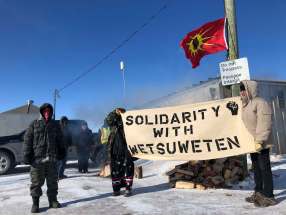Acknowledging a meaningful gesture
Read this article for free:
or
Already have an account? Log in here »
To continue reading, please subscribe:
Monthly Digital Subscription
$0 for the first 4 weeks*
- Enjoy unlimited reading on winnipegfreepress.com
- Read the E-Edition, our digital replica newspaper
- Access News Break, our award-winning app
- Play interactive puzzles
*No charge for 4 weeks then price increases to the regular rate of $19.00 plus GST every four weeks. Offer available to new and qualified returning subscribers only. Cancel any time.
Monthly Digital Subscription
$4.75/week*
- Enjoy unlimited reading on winnipegfreepress.com
- Read the E-Edition, our digital replica newspaper
- Access News Break, our award-winning app
- Play interactive puzzles
*Billed as $19 plus GST every four weeks. Cancel any time.
To continue reading, please subscribe:
Add Free Press access to your Brandon Sun subscription for only an additional
$1 for the first 4 weeks*
*Your next subscription payment will increase by $1.00 and you will be charged $16.99 plus GST for four weeks. After four weeks, your payment will increase to $23.99 plus GST every four weeks.
Read unlimited articles for free today:
or
Already have an account? Log in here »
Hey there, time traveller!
This article was published 13/02/2020 (2131 days ago), so information in it may no longer be current.
If Manitoba MLAs need a bit of inspiration to help them decide whether to begin their daily sittings in the legislative assembly with an Indigenous land acknowledgment, they might want to look to Hollywood.
Actor, writer and director Taika Waititi pleasantly surprised many viewers last Sunday when he acknowledged during the 92nd Academy Awards ceremony that those in attendance were gathered on the ancestral lands of the Tongva, Tataviam and Chumash.
“We acknowledge them as the first peoples of this land on which our motion picture community lives and works,” Mr. Waititi said onstage.
It’s believed to be the first time anyone has acknowledged the ancestral lands of local Indigenous people during an Academy Awards ceremony, held in Hollywood. It was fitting coming from Mr. Waititi, who also became the first person of Maori descent (the Indigenous people of New Zealand) to win an Oscar, which he received for best adapted screenplay for his film Jojo Rabbit.
Mr. Waititi’s land acknowledgement drew widespread praise for the respect and relationship-building it promoted with Indigenous communities. Manitoba MLAs should take note.
Surprisingly, Manitoba’s legislative assembly is one of the few public institutions in the province that doesn’t open its proceedings with a land acknowledgement. Winnipeg’s city council has been doing it since 2016. Many school divisions, corporations, arts organizations, community groups and others acknowledge the ancestral lands of Indigenous people (as well as the treaties signed between them and European settlers) at public events.
Since August 2017, the Winnipeg Free Press has included such an acknowledgement on its editorial page. The Winnipeg Jets and the Winnipeg Blue Bombers both honour the ancestral lands of local Indigenous groups before every game. But not the Manitoba legislature.
Land and treaty acknowledgements have been made prior to government throne speeches in recent years. Some MLAs and cabinet ministers honour ancestral land before speeches or during public events. But the legislative assembly itself — which is on Treaty 1 territory and the traditional homeland of the Métis — does not begin its daily sittings with a land acknowledgement.
No explanations have been offered by government or MLAs on why this is the case. The Pallister government has said land acknowledgements are simply not part of the protocol in the legislative assembly and that it would be up to the Speaker and the assembly itself to change that.
NDP Leader Wab Kinew wrote Speaker Myrna Driedger in 2017 about incorporating land acknowledgements into daily sittings. More than two years later, there still seems to be no interest, including from the Pallister government which, through its majority in the house, could influence such a change.
One would think the legislative assembly – arguably the most important public institution in the province – would be among the first to acknowledge the ancestral land of First Nations and the Métis.
Land and treaty acknowledgements are a small part of Canada’s reconciliation efforts, but they are important ones. They remind the public that Indigenous people lived here before European settlement and that treaties were established to promote peaceful and harmonious relations between Indigenous and non-Indigenous people. They are about fostering mutual respect and celebrating the rich culture that existed before colonialism.
If Manitoba’s legislative assembly can’t draw its inspiration from Hollywood when it comes to land acknowledgements, perhaps it could consider that this year — the 150th anniversary of the province — would be the perfect opportunity to make the change.
It would take little effort, but it would go a long way toward building good will with Indigenous communities.









